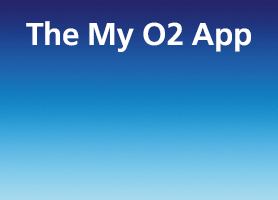- O2 Community
- Discussions, Feedback & off-topic
- Discussions & Feedback
- Scam Calls - Ofcom Acts, kinda..
- Subscribe to RSS Feed
- Mark Topic as New
- Mark Topic as Read
- Float this Topic for Current User
- Bookmark
- Subscribe
- Mute
- Printer Friendly Page
Scam Calls - Ofcom Acts, kinda..
- Mark as New
- Bookmark
- Subscribe
- Mute
- Subscribe to RSS Feed
- Permalink
- Report Content
on 25-10-2021 23:12
This is good news - but needs uptake from both terrestrial/landline and mobile operators:
- Mark as New
- Bookmark
- Subscribe
- Mute
- Subscribe to RSS Feed
- Permalink
- Report Content
on 26-10-2021 00:45
It goes 'some way' to ease the problem. If you read on, this stops you feeling so pleased
Experts agree that the only way to completely fix the problem is to implement new telephone identification protocols that enable phone networks to authenticate that all calls and text messages actually come a real telephone number.
Scams are becoming so sophisticated nowadays, using UK mobile numbers and often generated in the UK, How can these be stopped? Short answer, they can't.
Many 'intelligent' people, out of work or with time on their hands during Covid, developed so many scams.
I think we have seen a vast increase in these over the last 18 months.
Veritas Numquam Perit

- 41234 Posts
- 247 Topics
- 1844 Solutions
26-10-2021 06:53 - edited 26-10-2021 07:50
- Mark as New
- Bookmark
- Subscribe
- Mute
- Subscribe to RSS Feed
- Permalink
- Report Content
26-10-2021 06:53 - edited 26-10-2021 07:50
Ah, yes, those experts again, who would advocate the implementation of "new telephone identification protocols that enable phone networks to authenticate that all calls and text messages actually come from a real telephone number".
What the experts are talking about there is something that is commonplace in the eponymous IP networks that enable mobiles to achieve so much more than just be a voice call handling device.
Computer IP networks have had protocols that permit reverse lookups of numbers against a directory known as DNS, the Domain Name System, for example. The DNS is a common request-challenge system that has been leveraged to permit or deny access based on records populated into DNS by number/name registries, and is leveraged by other pieces of equipment known as "firewalls" to do forward and reverse lookups to check who is coming into and who is leaving a particular part of the network.
That said, these systems can be bypassed if someone in the middle subverts the normal traffic flow - challenging, but not impossible. And easily researched as all info is in the public domain.
The telephone system blindly accepts whatever number the calling equipment sends it, admitting a call onto or through the network unless the number has been blocked or masked out based on a part of the number matching a rule.
Each piece of network equipment in the world has a unique hardware "number" baked into it, a MAC address. Voice equipment is happy to use the number assigned to a particular location on the telephone network by an authorised body, blindly (ever "changed" your phone number?) - that is where the directory of "real telephone numbers" falls down - all phone numbers are, up to a point, real.
Older voice protocols, like ISDN, maintained a simple digit-matching mechanism to achieve this, although not a "lookup" function. Newer VoIP protocols (Voice over IP) can more easily be configured to inject any digits the (ab)user wants into the string of digits being passed into the older voice call network, which is where the system breaks down and permits a call from any network to make itself look like it originated from a number on the local authority's network. And then there are VPNs, which can make the connection appear as if it is originating in-country, rather than from a sweatshop several thousand miles away...
In short: t'is complicated, but it is a start - at least.
The old 'gentleman's agreements' for what was allowed on a voice network are outdated and open to abuse - when anyone can put whatever number they like on a call as it originates from, or passes through, their compromised equipment.
If I was an expert, I'd like to think I had a number that was immune to such calls - but as I might even choose to keep "my" number out of any such directory, I can't see how any such "telephone identification protocols" can feasibly be made to work without re-architecting the entire system... which Telcos won't do unless pressured, as the system today "works", getting calls from A to B successfully.
It's an interesting arena, @Cleoriff - and Ofcom have decided, for better or worse, to start controlling it at last, instead of "overseeing" it.
Let's see how those inventive scammers get around this one - as I am sure they will.
[Edited for typos and grammar]
- 130049 Posts
- 838 Topics
- 7607 Solutions
on 26-10-2021 07:59
- Mark as New
- Bookmark
- Subscribe
- Mute
- Subscribe to RSS Feed
- Permalink
- Report Content
on 26-10-2021 07:59
Sounds promising @pgn (although I admit I can't pretend to understand half of what you've written above 😉), but I do know this, if you leave one spark in a fire you think you have put out, a few more twigs thrown on it will start another big blaze.
This should have been started years ago before scamming became so sophisticated. Even our own guides on dealing with scam calls and texts are becoming obsolete now. The advice is good on what to do if you have been a victim but when they were written, scams were more simplistic. Hackers and scum like them don't just have a target audience of scamming elderly people out of their life savings. Nowadays, we are all at risk unless you have your wits about you. When scammers can clone numbers so they appear to come from O2 (for instance) what chance have we got?
So yes, it's a start but red tape, research groups, sub research groups etc etc etc, will ensure it's all too late. By the time they are ready to implement the measures in the article above, another arm of telephone (terrorist) scammers will have grown, more sophisticated than the last.
If this sounds cynical, it's because I am.
Veritas Numquam Perit

- 41234 Posts
- 247 Topics
- 1844 Solutions
on 26-10-2021 08:23
- Mark as New
- Bookmark
- Subscribe
- Mute
- Subscribe to RSS Feed
- Permalink
- Report Content
on 26-10-2021 08:23
- 130049 Posts
- 838 Topics
- 7607 Solutions
on 26-10-2021 08:39
- Mark as New
- Bookmark
- Subscribe
- Mute
- Subscribe to RSS Feed
- Permalink
- Report Content
on 26-10-2021 08:39
- Mark as New
- Bookmark
- Subscribe
- Mute
- Subscribe to RSS Feed
- Permalink
- Report Content
on 26-10-2021 12:54
Or the willingness of the committee to do the bidding of the one paying for it all...
Please note, this is not customer services and we cannot access your account. Do not publish personal details (email, phone number, bank account).
Link to our guide on how to contact them can be found here




